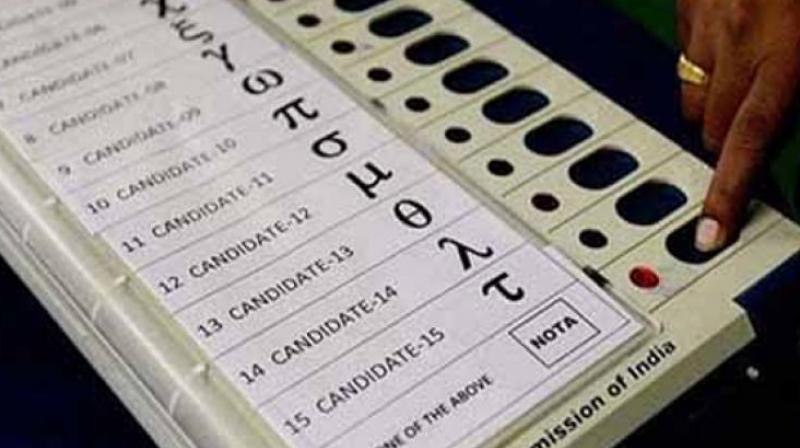Voters’ criminal record is not known
The ADR conducted an analysis of self-sworn affidavits of 909 out of 918 of candidates.

New Delhi: While the Narendra Modi-led BJP’s main thrust is still on “muscular nationalism”, terrorism and polarisation for the general election, a survey by the Association for Democratic Reforms (ADR) and the National Election Watch (NEW) found employment is the biggest issue for voters, followed by healthcare, the availability of clean drinking water and agricultural issues.
Agriculture-related governance issues featured predominantly in the all India top 10 voters’ priorities such as availability of water for agriculture (26.40 per cent) that was ranked sixth, agriculture loan availability (25.62 per cent) was ranked seventh, higher price realisation for farm products (25.41 per cent) was ranked eighth, and agriculture subsidy for seeds/fertilsers (25.06 per cent) was ranked ninth.
“Governnace-related issues were the top priorities while terrorism was ranked 30th out of 31 issues, clearly indicating voters’ priorities,” said Maj. Gen. Anil Verma (Retd), the head of NEW and ADR.
In fact, voters felt that the worst performance of the government was on the issues of encroachment of public land, terrorism, training for jobs, strong defence/military, eradication of corruption, lower food prices for consumers and mining/quarrying.
The survey also found that for most voters (75.11 per cent), the chief ministerial candidate was the biggest reason behind voting for a particular candidate, followed by the candidate’s party (71.32 per cent) and the candidate (68.03%) himself/herself.
“It is distressing to see that for 41.34 per cent of voters, distribution of cash, liquor, gifts etc was an important factor behind voting for a particular candidate in an election,” the survey found.
Interestingly, when it came to voting for candidates with criminal antecedents, most voters (36.67 per cent) said people vote for such candidates because they are unaware of his/her criminal records and they are also willing to vote for a candidate with criminal records if he/she has done good work in the past.
While 97.86 per cent of voters felt candidates with criminal backgrounds should not be in Parliament or the state Assemblies, only 35.20 per cent voters knew they could get information on the criminal records of the candidates.
The ADR also conducted an analysis of self-sworn affidavits of 909 out of 918 of candidates, and it was found that 170 (19 per cent) out of 909 candidates had declared criminal cases against themselves.
Of these, 20 candidates had crimes against women listed against them, including assault or criminal force to a woman with intent to outrage her modesty, dowry death, gesture or act intended to insult the modesty of a woman; while two had cases of rape against them. Ten candidates had cases related to hate speech against them.

